We all know that eating fast food and junk food isn’t the healthiest way to live. But most of us just think we’ll put on some weight, miss a few vitamins and nutrients, and make up for it with a week’s worth of eating raw fruits and veggies.
No big deal, right?
Unfortunately, our bodies don’t work like that.
Sure, the bloating, indigestion, and moodiness will pass in a few hours or days, but have you ever considered the long term effects of eating that junk food?
Eating processed foods causes increased rates of:
- Obesity
- Cancer
- Food addiction
- Chronic inflammation
- Indigestion
- Asthma and allergy symptoms
- Impaired brain function
We’re going to focus on that last topic today – impaired brain function.
While you can always work off those few extra pounds when you eat junk food, you can’t give your brain an exercise regime to keep it healthy.
Instead, we must rely on our diet to play an integral role in the functioning and health of our brains.
So if we’re literally feeding our brains when we eat nutritious food, what happens when we feed them unhealthy food?
A New Study Says Junk Food Shrinks Our Brains
 According to a study completed by Deakin University and the Australian National University (ANU), eating junk food literally causes part of your brain to decrease in size.
According to a study completed by Deakin University and the Australian National University (ANU), eating junk food literally causes part of your brain to decrease in size.
Well, more specifically, junk food shrinks a very particular, important part of your brain called the left hippocampi.
The hippocampus is the part of the brain that’s responsible for:
- learning
- memory
- mental health
How did the researchers come up with these mind-blowing results?
Participants, aged between 60-64 years old back in 2001, were part of a larger, longitudinal study on aging conducted at the ANU called the Personality and Total Health Through Life Study (PATH).
Researchers asked these participants to fill out surveys about their diets. Based on their answers, the participants were split into two groups: junk food eaters and healthy food eaters.
The participants consuming a ‘Westernized’ diet admitted to eating large amounts of junk food that included:
- high sodium foods and snacks
- sugary drinks
- processed foods and meat
- fatty food
Conversely, those in the healthy foods group consumed more whole, unprocessed, and nutrient-rich foods such as fruits, veggies, and fish.
The participants were given two MRI scans that were four years apart.
When the researchers analyzed the brain scans, they discovered that participants eating the most ‘Westernized’ diets (aka processed, junk food city) had smaller hippocampi compared to those eating healthy foods.
They realized that hippocampal volume was greatest in those following the healthiest diets. Go figure, right?
The scientists ruled out obvious factors that could have been responsible for the shrinking hippocampi, such as medications, mental health issues, and gender, and junk food was still a main predictor of decreased hippocampal size.
Here’s something crazier to think about: diet was still a major predictor for shrinking brains even when physical activity, smoking, mental disorders, and education were on the table.
This means that it doesn’t matter if you’re a gym rat or a heavy smoker, your brain will shrink the same way if you keep eating a poor diet of junk food and take out.
Felice Jacka, the associate professor who led the study, said:
“We’ve known for some time that components of diet, both healthy and unhealthy, have a rapid impact on aspects of the brain that affect hippocampal size and function, but up until now these studies have only been done in rats and mice. This is the first study to show that this also appears to be the case for humans”.
What does a shrinking brain mean for us?
Damage to the hippocampus means you risk losing the ability to form new memories, retrieve old memories, and progress from mild cognitive impairment to full blown Alzheimer’s disease at a much faster rate.
This Is Your Brain on Junk Food
 Poor diet and nutrition have been strongly correlated with:
Poor diet and nutrition have been strongly correlated with:
- Depression
- Dementia / cognitive disorders
- Anxiety
For instance, the trans fats found in many fast food chains and processed foods damage the neurons in your brain so they stop firing properly. Plus, when your body processes added sugars, it “creates free radicals in your brain’s membrane, where they hinder the ability for nerve cells to communicate”.
This will definitely slow down your ability to think quickly and clearly.
According to one study, eating a high fat and refined sugar diet will cause your body to decrease production of brain-derived neurotrophic factor (BDNF), a brain chemical that helps us learn and remember things. It also helps us form new memories.
What’s even worse is that low BDNF levels have been linked to depression and dementia.
“Higher intake of fast food may very well increase risks of depression by causing poor health in general”, David Katz, MD, director of Yale University’s Prevention Research Center says. “But depression may also increase fast food intake”.
This is the classic setup for a food addiction: crave, binge, withdrawal, repeat. This unhealthy cycle leads to obesity, cardiovascular health issues, and diabetes.
Diabetes and Mental Health
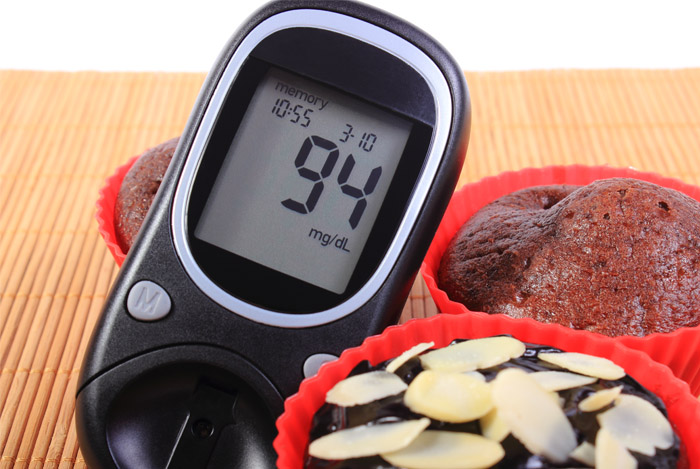 Type 2 diabetes, the most common form of diabetes, causes your blood sugar levels to rise and throws off your body’s use of insulin. This leads to insulin resistance and forces your pancreas to make extra insulin to fix this problem.
Type 2 diabetes, the most common form of diabetes, causes your blood sugar levels to rise and throws off your body’s use of insulin. This leads to insulin resistance and forces your pancreas to make extra insulin to fix this problem.
- 29 million people in the US have diabetes
- 86 million Americans age 20 and older are diagnosed as being prediabetic (more than one in three adults)
- Diabetes and related complications cost the US “$245 billion in total medical costs and lost work and wages”.
We know that the diabetes epidemic is serious. But did you know that people with type 2 diabetes are two to three times more likely to develop Alzheimer’s disease?
“Mental disorders account for the leading cause of disability worldwide, while rates of dementia are increasing as the population ages”, Jacka notes.
There are currently 35 million people suffering from Alzheimer’s worldwide. But by 2050, that number is expected to rise to 100 million.
Many scientists agree that Alzheimer’s begins as a metabolic disease. Some are even starting to refer to Alzheimer’s as type 3 diabetes since it “results from resistance to insulin in the brain”.
Suzanne de la Monte, a neuropathologist at Brown University, has been working to figure out what happens when human and rat brains lack insulin. “When she blocked the path of insulin to rats’ brains, their neurons deteriorated, they became physically disoriented and their brains showed all the signs of Alzheimer’s”.
While this is scary news for anyone living on doughnuts, cookies, and soda, we can prevent both type 2 diabetes and Alzheimer’s by choosing to cut out added sugars from our diets.
Food to Keep Your Brain From Shrinking
“A healthy diet has been shown to treat depression and slow the effects of dementia”.
But there’s no one healthy diet to follow for a strong mental health game. Instead, you need to make sure you’re eating the following foods for your brain.
Omega-3 Fatty Acids
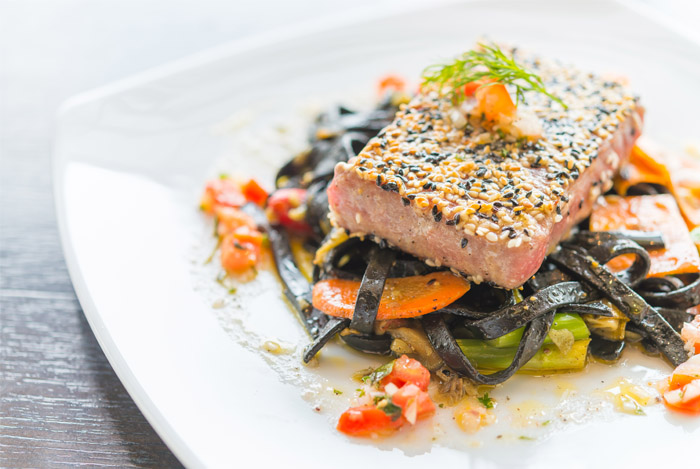 When you have a diet low in omega-3 fatty acids, which happens when you chose fast foods and junk food, you increase your risks for “attention deficit hyperactivity disorder, dementia, bipolar disorder, and schizophrenia”.
When you have a diet low in omega-3 fatty acids, which happens when you chose fast foods and junk food, you increase your risks for “attention deficit hyperactivity disorder, dementia, bipolar disorder, and schizophrenia”.
Why’s that?
Omega-3s reduce inflammation in your brain, which is considered one of the main causes of dementia and brain damage. These fatty acids also keep the lining of your brain flexible, which lets information pass quickly between nerve cells.
According to the University of Maryland Medical Center, studies show that consuming fewer omega-3 fatty acids is “associated with increased risks of age-related cognitive decline or dementia, including Alzheimer disease”.
Remember, even though our bodies need essential fatty acids, we’re unable to produce them on our own. That’s why getting omega-3s from food sources is so imperative.
Opt for these delicious, omega-3 rich foods at least twice a week:
Green Tea
 You guys know I think green tea is the healthiest drink in the world. I drink at least a cup every day and even use green tea as the base for my amazing fat melting drink.
You guys know I think green tea is the healthiest drink in the world. I drink at least a cup every day and even use green tea as the base for my amazing fat melting drink.
Green tea is so darn healthy because it has mega high levels of epigallocatechin-3 gallate (EGCG).
According to research, EGCG “enhances adult hippocampal neurogenesis”, which is a scientific way of saying it creates neurons in the hippocampus that actually improve overall cognitive function in adult mice.
This is great news not only because EGCG fights off shrinking brain syndrome, but strengthens the hippocampus, the area both Parkinson’s and Alzheimer’s affects the most.
Good Carbs
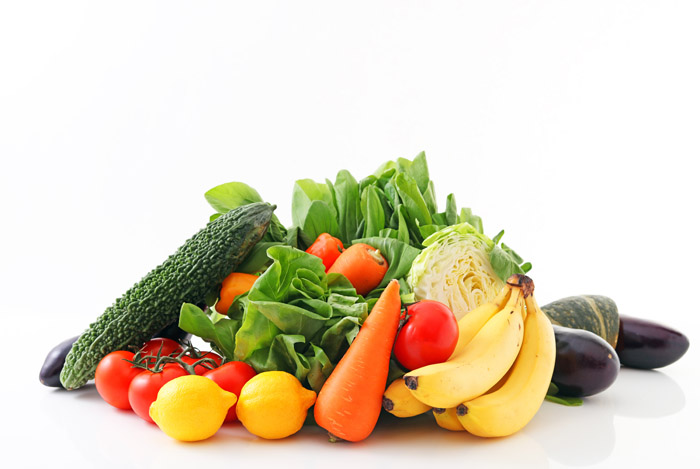 Good carbs found in fruits, veggies, and whole grains give your brain and body a steady stream of the glucose and energy it needs to function. Good carbs come without the processed sugar from refined carbs that will cause blood sugar spikes and damage the way insulin works in your brain.
Good carbs found in fruits, veggies, and whole grains give your brain and body a steady stream of the glucose and energy it needs to function. Good carbs come without the processed sugar from refined carbs that will cause blood sugar spikes and damage the way insulin works in your brain.
Whole grains from brown rice, quinoa, and whole wheat bread have been shown to reduce issues of inflammation and oxidative stress that lead to the progression of Alzheimer’s.
Walnuts
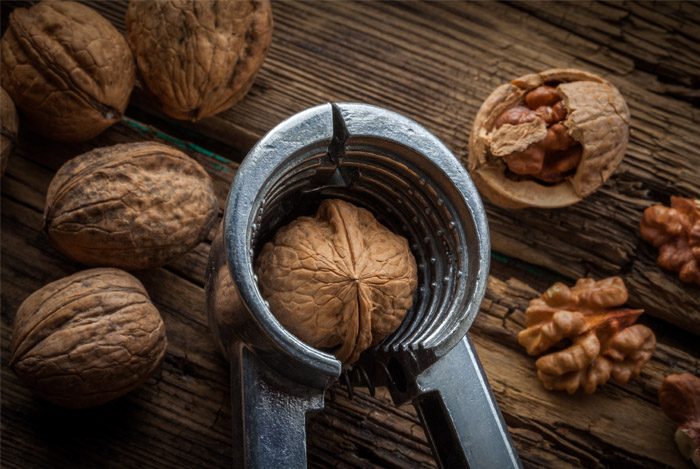 Walnuts provide a healthy source of DHA, an omega-3 fatty acid that’s perfect for vegetarians and vegans. In fact, just 1/4 cup provides almost 100% of your recommended daily intake of DHA.
Walnuts provide a healthy source of DHA, an omega-3 fatty acid that’s perfect for vegetarians and vegans. In fact, just 1/4 cup provides almost 100% of your recommended daily intake of DHA.
Plus, one study demonstrated that “participants with higher walnut consumption performed significantly better on a series of six cognitive tests” designed to test information processing, memory, and concentration.
These nuts that are actually shaped like tiny brains may have a “positive effect on reducing cognitive impairment and overall brain health, which includes the possible beneficial effects of slowing or preventing the progression of Alzheimer’s disease”.
Leafy Green Veggies
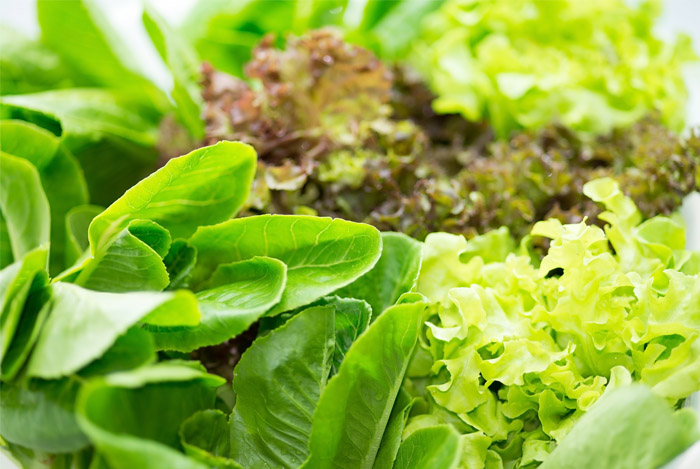 Make sure to sneak your green veggies in if you want a healthy brain.
Make sure to sneak your green veggies in if you want a healthy brain.
“A 2006 Neurology study reveals that eating three servings of leafy green, yellow, and cruciferous vegetables a day can delay cognitive decline by 40 percent”.
Results from another study claim that participants who enjoyed one or two daily servings of green leafies had the “cognitive ability of a person 11 years younger than those who consumed none”.
Up your green leafies by consuming more:
Final Notes
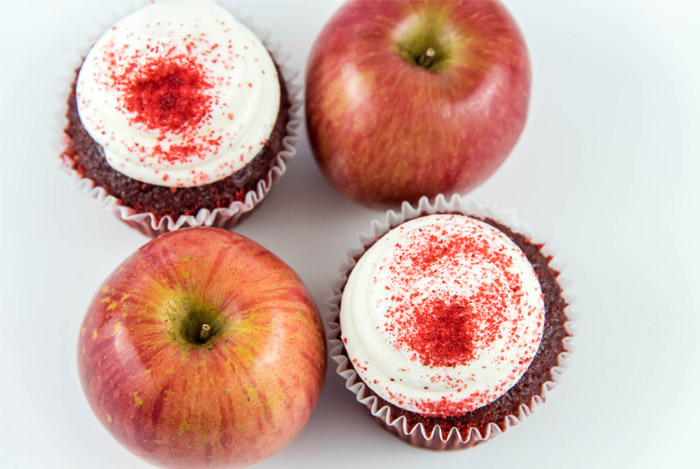 Cognitive decline is one of my greatest fears in life. I just can’t imagine not being able to be myself and think clearly or rationally.
Cognitive decline is one of my greatest fears in life. I just can’t imagine not being able to be myself and think clearly or rationally.
And even though we have memory-preserving Instagram feeds, I can’t fathom not being able to remember the happiest moments of my life.
Since rates of Alzheimer’s are climbing, I’m sure you’ve encountered your fair share of interactions with those suffering from this sad disease, which should make you even more determined to avoid it.
Learn how to understand the science behind your cravings for fast food and start choosing delicious foods that taste better than junk food (and won’t shrink your brain!).
What are you going to do to keep your brain from shrinking? Share your thoughts with me in the comments – I’d love to hear what you think about this study’s eye-opening results!
The post WARNING! How Eating Junk is Literally Shrinking Your Brain appeared first on Nutrition Secrets.
http://www.nutritionsecrets.com/junk-food-your-brain/
No comments:
Post a Comment